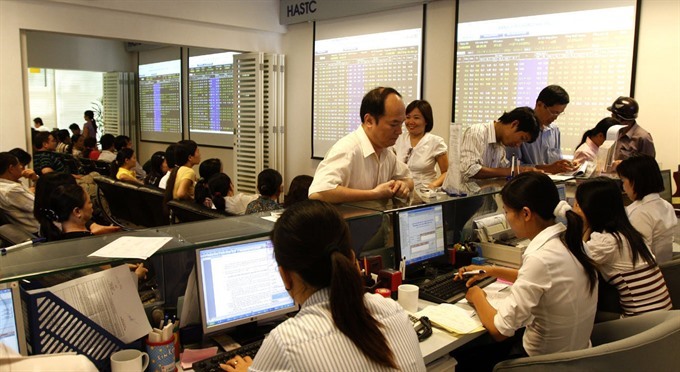The new amended draft law on securities allowing full foreign ownership at public companies and investment funds would help Viet Nam’s securities market be included in the Morgan Stanley Capital International (MSCI)’s review list for a potential reclassification to Emerging Markets status.

The new amended draft law on securities allowing full foreign ownership at public companies and investment funds would help Viet Nam’s securities market be included in the Morgan Stanley Capital International (MSCI)’s review list for a potential reclassification to Emerging Markets status.
The draft removed limits on how many voting shares foreign investors can buy in public Vietnamese companies. Previous regulations had capped foreign ownership at 49 per cent.
The State Securities Commission (SSC) has requested public comments because this is a specialised law and revision would take time. Agencies, organisations and individuals can submit their comments.
According to MSCI’s recently published Market Rank Report, the Vietnamese market needs to improve on several issues, one of which refers to the foreign ownership limit in Vietnamese companies. According to MSCI, the stock market is significantly impacted by foreign ownership issues.
The report suggests relaxing the limit on foreign ownership and accelerating the divesting of State capital in State-owned enterprises to further broaden the investment scale for foreign investors.
MSCI’s report also evaluates the limits of foreign ownership in public companies operating in business lines and sectors for which the laws have specific provisions on the foreign-ownership ratio.
For State owned enterprises conducting public offers of shares in order to equitise, the foreign ownership ratio must comply with the laws on equitisation.
Foreign investors are entitled to conduct unrestricted investment in Government bonds, Government guaranteed bonds, local authority bonds and enterprise bonds, except when the laws or the issuing organisations have some other provisions.
Foreign investors are entitled to conduct unrestricted investment in certificates of securities investment funds, shares of securities investment companies, shares without voting rights of public companies, derivative securities, and depository receipts, except when the charter of issuing organisation has other provisions.
Except for open funds, securities investment funds having foreign ownership ratios of 51 per cent or more must comply with requirements and procedures for investment under the regulations on contributing capital, purchasing securities, or capital contribution portions of economic organisations by foreign investors.
Statistics from the SSC show that the value of foreign investors’ investment portfolios reached $34.2 billion by the end of July.
As planned, the new amended draft Law on Securities will be submitted to the Government in the second quarter of 2019 and submitted to the National Assembly for consideration and approval in the fourth quarter of 2019.
The foreign ownership ratio is the total ownership ratio of shares, capital contribution portions with voting rights of all foreign investors and economic organisations having foreign investors holding 51 per cent or more of charter capital in any one public company, securities business organisation or securities investment fund.
Foreign investor means an individual having foreign nationality, or an organisation established under foreign laws and doing investment and business in Viet Nam. — VNS





